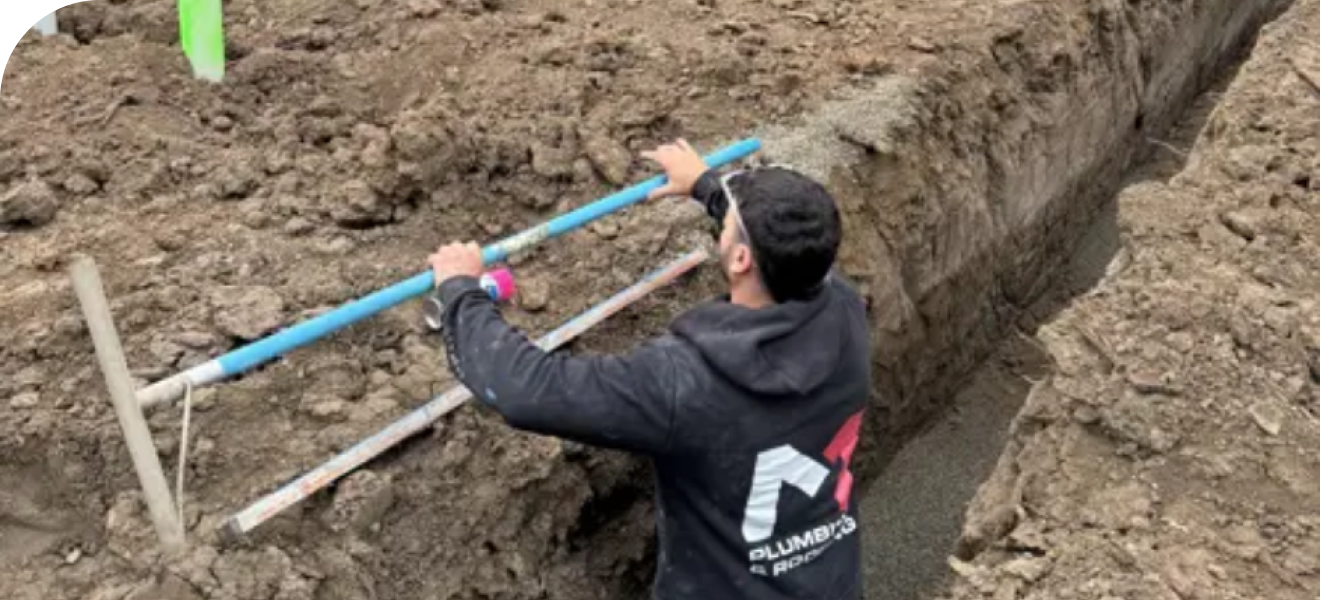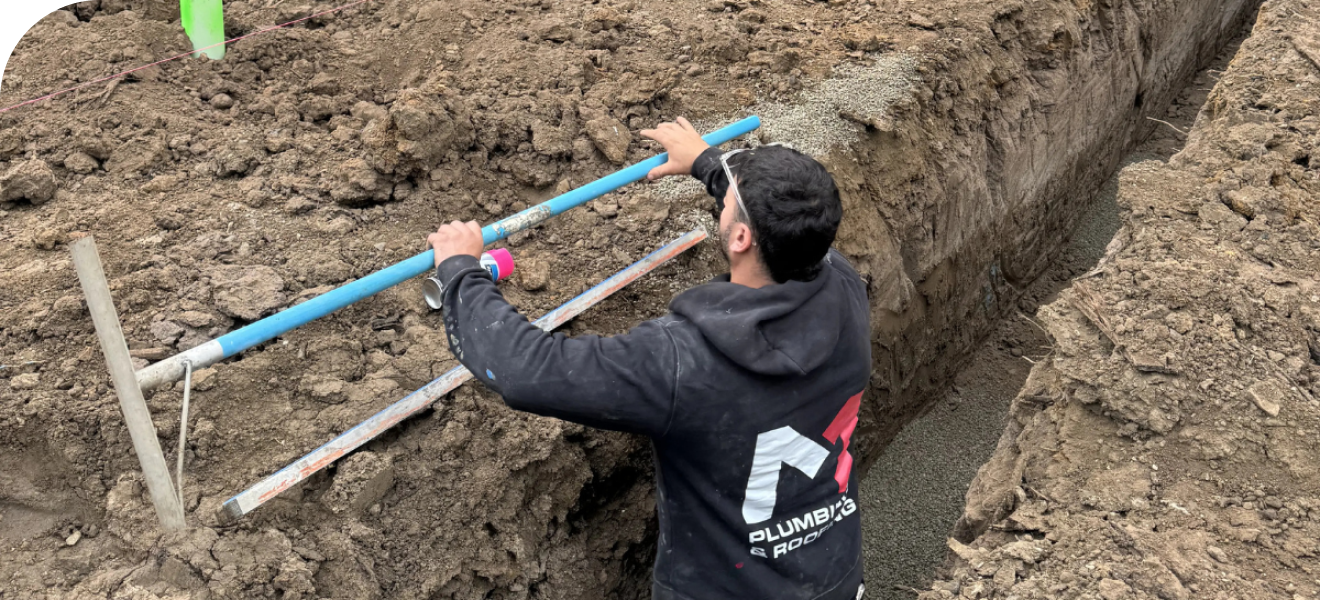A properly functioning plumbing system is the backbone of any commercial property, be it an office, retail outlet, industrial facility, or hospitality venue. Ignoring routine plumbing maintenance can lead to costly disruptions, unsanitary conditions, water damage, and business downtime.
Unlike residential plumbing, commercial plumbing involves complex pipe systems, higher water demand, and strict compliance with building codes and safety standards. That’s why proactive commercial plumbing maintenance is not just a practice; it’s essential.
In this blog, we will discuss the tips for maintaining the commercial plumbing system.
How Can You Keep Your Commercial Plumbing System Working Efficiently?
Here are five practical tips to help you maintain your commercial plumbing system and avoid unexpected breakdowns.
1. Schedule Regular Plumbing Inspections
Routine inspections by licensed commercial plumbing contractors can detect hidden issues before they become serious. This includes checking for:
- Leaking pipes and fixtures
- Corrosion or rust buildup
- Water pressure inconsistencies
- Blocked or slow-draining pipes
- Backflow risks and compliance issues
Inspections should be scheduled at least twice a year, especially in older buildings or high-usage environments like restaurants or multi-storey complexes.
Hiring a local plumber with commercial expertise ensures you get service and a deeper understanding of local water regulations and property layouts.
2. Prevent Blockages with Scheduled Drain Cleaning
Blocked drains are a common yet avoidable problem in commercial properties. Whether it’s grease build-up in a restaurant, hair in shared restrooms, or debris in industrial zones, clogs can cause unpleasant odours, flooding, and property damage.
To avoid blockages:
- Install drain strainers in kitchen and bathroom sinks
- Avoid pouring oils, fats, or chemicals down drains
- Implement a routine maintenance plumbing schedule for drain cleaning
- Use enzyme-based cleaners (eco-friendly) instead of harsh chemicals
Professional commercial plumbing services often include hydro-jetting, a high-pressure cleaning technique that clears out debris without damaging the pipes.
3. Monitor Water Pressure and Usage
In a commercial setting, high or inconsistent water pressure can strain plumbing fixtures, cause pipe bursts, and lead to water wastage. Installing pressure regulators and monitoring water use is essential for efficiency and longevity.
Tips to improve pressure management:
- Use low-flow fixtures in restrooms and kitchens
- Regularly test and calibrate pressure-reducing valves
- Monitor water bills for sudden spikes, which may indicate hidden leaks
- Integrate plumbing systems to track usage and detect anomalies
By closely watching water consumption, you’ll also improve sustainability, a growing priority for modern businesses.
4. Maintain Hot Water Systems and Boilers
Hot water is a critical component in industries such as hospitality, health, manufacturing, and education. Poor maintenance can lead to scalding, bacterial growth (like Legionella), and energy inefficiencies.
Ensure the longevity of your hot water systems by:
- Flushing tanks to remove sediment buildup
- Testing temperature controls and pressure valves
- Checking for leaks in fittings and connectors
- Servicing heating elements as per the manufacturer's guidelines
Certified commercial plumbing contractors can carry out boiler inspections, certifications, and system upgrades to ensure compliance and safety.
5. Create a Preventive Maintenance Plan
Rather than waiting for an issue to arise, it’s more efficient to implement a commercial plumbing maintenance plan. An ideal plan should:
- Include inspection timelines, servicing routines, and emergency contacts
- Be adjusted based on your building type, usage levels, and age of the plumbing system
- Cover high-risk areas such as restrooms, kitchens, utility rooms, and underground piping
- Be handled by a reliable local plumber who understands your business's needs
Preventive maintenance reduces the risk of major repairs, ensures regulatory compliance, and extends the lifespan of your entire plumbing network.
Also, read my other blog for common plumbing problems.
Why Choose M1 Plumbing & Roofing for Your Commercial Plumbing Needs?
When it comes to commercial plumbing in Melbourne, choosing the right contractor can make all the difference. At M1 Plumbing & Roofing, we combine years of experience, modern tools, and client-first service to deliver top-tier plumbing maintenance solutions.
Here’s why business owners and property managers trust M1 Plumbing & Roofing:
- Commercial Plumbing Specialists: We have extensive experience in servicing retail buildings, office spaces, medical facilities, warehouses, and more.
- Certified and Licensed: Our qualified team meets all compliance standards, ensuring your plumbing system is safe, legal, and efficient.
- Maintenance Plans: We customise plumbing maintenance schedules based on your property’s unique requirements and risk areas.
- Rapid Response Times: As a trusted local plumber, we offer service across Melbourne, minimising downtime and disruption.
- Advanced Diagnostics: We use the latest technology to ensure accurate results.
- Transparent Pricing: Just honest quotes, detailed scopes, and quality workmanship every time.
Choosing us means choosing that we don’t just fix problems, we prevent them from happening.
Takeaway
A well-maintained plumbing system is essential to your commercial property’s safety, hygiene, and functionality. With proactive care, you can avoid costly repairs, extend your infrastructure's lifespan, and maintain smooth day-to-day operations.
By following these essential maintenance tips and partnering with a trusted provider like M1 Plumbing & Roofing, you’ll gain the assurance that your plumbing is in expert hands.
Ready to take control of your plumbing system? Contact M1 Plumbing & Roofing today to schedule a commercial plumbing inspection or create a maintenance plan that protects your property long-term.





